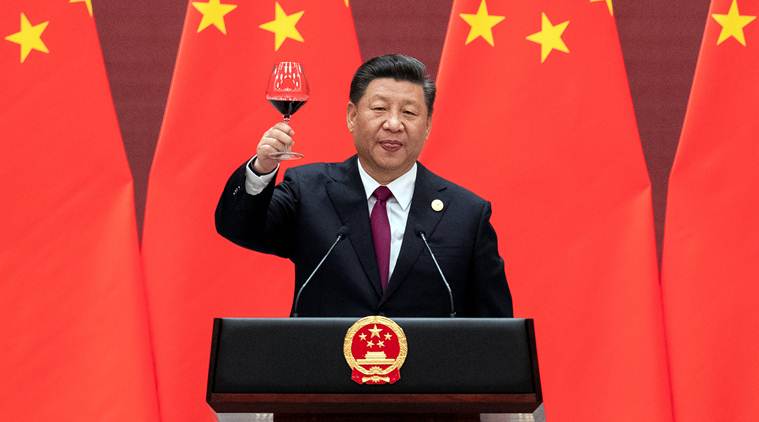
In an attempt to put to rest worries about the cost of Belt and Road projects trapping poor countries with unmanageable debts and creating regional hegemony, Chinese President Xi Jinping on Friday said “Belt and Road is not an exclusive club” and that projects will be transparent and will have zero tolerance for corruption. China signalled its intention to address concerns of debt financing by putting forth “sustainable financing” options for smaller countries to ease debt burden.
India once again gave the Belt and Road Forum a miss over its opposition to China-Pakistan Economic Corridor (CPEC), which cuts through Pakistan-occupied Kashmir. The United States also did not attend the forum this year.
In his keynote address at the Second Belt and Road Forum for International Cooperation held here, Xi made a clear pitch for a shared future to ensure people of “all countries live a better life.” He said there was a need to “uphold the principle of consultation” and “shared benefits” and said that countries “should create a sound investment environment” and “treat Chinese enterprises, students and scholars abroad as equals. All countries should provide a fair and friendly environment for them to carry out normal international exchanges and cooperation.”
Explained: What to expect from the second Belt and Road Forum
Speaking in the presence of 37 Heads of State or Government, including Russian President Vladimir Putin, Pakistan Prime Minister Imran Khan, and Malaysian Prime Minister Mahathir Mohamad, who also delivered speeches, Xi said: “Facts have proved jointly building the “One Belt And One Road” has not only provided new opportunities for the development of all countries in the world, but also opened up new horizons for China’s opening-up and development.”

Pakistan Prime Minister Imran Khan said BRI “marks a new and distinct phase in the onward march of nations of the world along the path of globalisation.” He noted: “The presence of so many world leaders today is proof that we choose hope over despair and cooperation over confrontation.” Khan said Pakistan has been among BRI’s “earliest and most enthusiastic proponents.”
Citing the example of CPEC, Khan said Pakistan’s energy supplies have increased massively. “Our critical infrastructure gaps are being plugged,” he said. “Supplementing the next phase of CPEC, we are signing an expanded Pakistan-China Free Trade Agreement,” he added. Khan also thanked China for its “leadership and unwavering support”. He also called on leaders to take joint efforts to mitigate climate change, establish a BRI Tourism Corridor, establish an office of anti-corruption cooperation to combat white-collar crime and set up a poverty alleviation fund.
Meanwhile, Malaysian Prime Minister Mahathir Mohamad said there should be as much emphasis on sea routes as land routes. Speaking about pollution from the Straits of Malacca that smaller countries have to deal with, he said: “If we designate the Straits of Malacca as an international route, then the international community must assume responsibility for keeping the seas clean and unpolluted. But the responsibility falls on smaller states and that does not seem fair.”